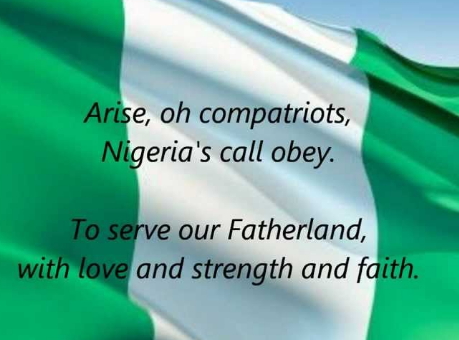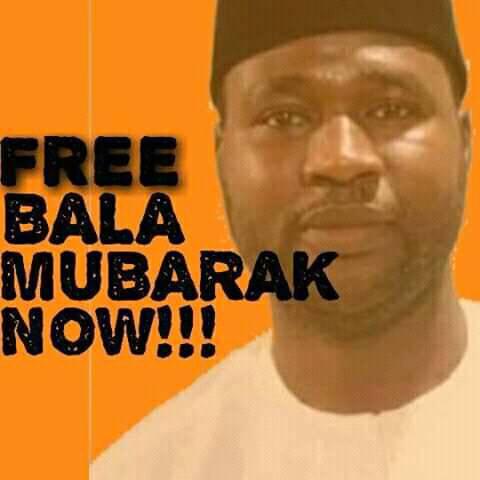
By Adedotun Hadizah Adeoti
As far as we all can remember, Nigeria has always been the country that never did anything good for anyone. And nobody can blame our collective memories for this. Successive governments, both military and civilian have demonstrated clearly that welfare of the citizens is an afterthought, and not an agendum to be pursued vigorously and institutionalized as is obtained typically in Scandinavian countries and to a lesser extent, some parts of Europe.
That said, however, there are parts of my memory that still remembers that Nigeria made a valiant effort at some point in our recent history to prioritize citizens’ welfare. I was born in the mid 80’s in Northern Nigeria and I can say I am a part of the last generation of Nigerians to get free things from Nigeria: free housing, healthcare, amenities and almost free education from Nursery school to the University.
Nigeria gave me a good foundation and a great childhood. My parents were educated, and in those days, if you were a member of staff of the University, your children or relatives (as far as you bore the same surname) got free education from nursery school to secondary school. We had free housing within the university with running tap water, electricity (I neither knew what a borehole was nor used a generator till year 2000), and free healthcare from the university hospitals.
The only things I remember paying for out of pocket were worn out school shoes or socks and bags. I remember that, then, upon entry into nursery and primary school, we all got free uniforms made out of enough materials to make 3 dresses . We also got free stationery. Behind each classroom was a shelf of textbooks, though worn-out, were used to teach subjects like mathematics, English, Social studies and Basic Science. The only times my parents needed to buy school textbooks was if we needed extra lessons at home. But then, there were free extra lessons and summer schools for a token of 20 Naira available at the school, and that was if the parents so wished. It was rare to find children enrolling for these classes though, because the regular classes were more than sufficient. With the benefit of a broad knowledge of the world now, I know this should be basic for all citizens. Universal basic education is a national development imperative and fundamental function of government. The point however is not whether free primary education should be my right then, as it is in developed clime, but that it was implemented at all here in this country at some point in our history.
By the time I got to secondary school, things had started deteriorating. It was in Secondary school that I first heard of “development levy” and “school fees” and my parents had to pay for school uniforms up front. The Federal Unity School was relatively new (my set was the 5th set admitted into the school) and with benefit of hindsight, probably needed to generate internal revenue. Upon transfer from the University secondary school to a Federal Unity school, we paid a total of 15,000 Naira per session, which included feeding and board, school books, pens and text books, excursions for the entire session. There were school buses to convey children from Lagos to the hinterlands of Osun state where the school was located, the fares were subsidized for parents and crowd-funding made it cost next to nothing, thereby presenting less risk to parents who had to travel from different parts if the country to transport their kids to school.
Surprisingly, free education was still operating by the time I got to the University. There was accommodation for all students (except you chose not to use it or you were in your internship year) for a token of 90 Naira per session! This was as good as free accommodation. School fees per session cost less than my feeding allowance for 6 months. All these ensured that I and my parents were spared the headache of school fees. As far as I know, I was not a special student; neither did I win any scholarships. I had the same opportunity as everyone else.
Nigeria also gave me justice. At some point in the university, female students were being attacked on campus and the school investigated and found the culprits. The school protected our identities and handed over the culprits to the police (within the school), we appeared in court once and they were sentenced to 18 years each. We got treatment, therapy and counselling and the school went over and beyond to secure students by increasing police presence around the university.
During compulsory youth service year, I got posted to an LGA where farming was the mainstay and after speaking to the village head and the staff at the LGA, I got a small piece of land at the nearby farm and employed help to cultivate yam. I got the capital for a clothes business from the sale of the yam tubers I harvested from my farm and the increase in youth corpers’ allowance (popularly called ‘’Corper’s alawee”) to 9,800 Naira, courtesy of the Federal Government in light of the previous amount not matching the reality of prices of food in the market.
In all these, I got a sound education and participated in several competitions while in school, and I won several awards and recognition. The free but quality education and the demonstration of justice that I got remain the foundation I still stand on and build with today. The court incident still gives me hope that the justice system in Nigeria still delivers when you know your rights and as long as good people still exist and follow the right channels. My family never knew what happened yet I got adequate care from my university without spending a dime.
I built resilience and an entrepreneurial spirit during my youth service year. I have never really admired working for government but I know many who currently have government jobs after applying several times or just once (in some cases). Through the opportunity made available by the collaborations of government institution though, I have worked in the field of Public Health for four years now and have paid my way through a master’s degree and supported myself and some family members for over 10 years.
I know that it is disheartening what the state of the country is today and it does not look like it will get any better soon. But my individual memory remembers that there was once a time that Nigeria did good things for her citizens. Our collective memories may have forgotten, but mine remembers. It may not be much, but Nigeria has done me good.
(c) Adedotun Hadizah Adeoti 2020




Comments (3)
Diogosays:
August 17, 2020 at 10:45 amI love this.. Despite what Nigeria has turned into, there was once a time, Nigeria was good to her citizens.
Nigeria taught me a whole lot of things that have helped me out in life.
Aanu Oluyidesays:
August 17, 2020 at 11:55 amBeautiful. Who would have thought?
I heard these stories often from my lecturers.
Aanu Oluyidesays:
August 17, 2020 at 11:56 amBeautiful. Who would have thought?
I heard these stories often from my lecturers.